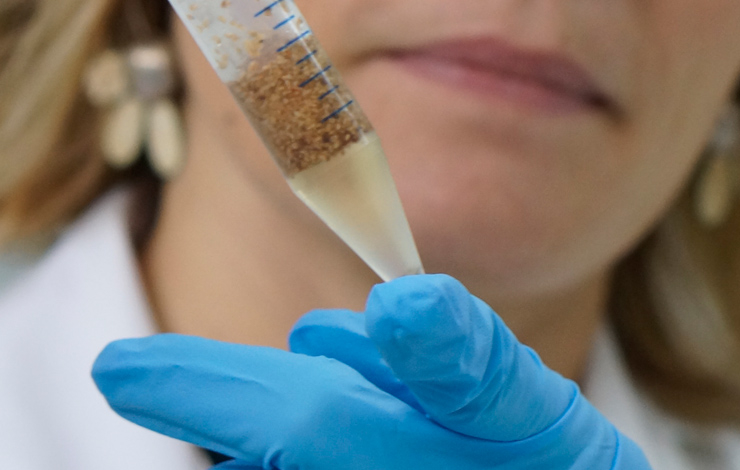08-06-2022

Researchers from DES.SOLVE and Biocatalysis & Bioenergy groups of NOVA School of Science and Technology have discovered that Deep Eutectic Systems, based on natural compounds, may be a better alternative to the current cryopreservation medium used (DMSO - dimethylsulfoxide) that presents toxicity to cells. The discovery is now published in Nature's Scientific Reports, a prestigious peer-reviewed scientific publication.
These Systems are mainly composed of primary metabolites, such as sugars, polyols and amino acids, and can be found in animals and organisms living in environments with extreme thermal amplitudes between summer and winter. "These are molecules of natural origin, which makes Deep Eutectic Systems more biocompatible and less toxic," explains Ana Rita Duarte, professor and researcher from the Department of Chemistry, who, together with Alexandre Paiva (professor and researcher from the same department), leads this research.
Taking into account that the medium currently used for cryopreservation is toxic to cells and must be removed immediately after thawing, the new solution promotes a completely disruptive approach, with application both in research and, mainly, in the area of medicine and cell therapies.
Cancer patients may benefit from this new solution that may also have applicability in stem cells and, eventually, in medically assisted reproduction (long-term studies are needed to understand its viability). As this modern alternative does not require the use of highly specialized equipment, it will be able to reach more people and treatments may be administered in more hospitals and clinics.
This discovery promises to operate a crucial turning point on a global scale, becoming a Portuguese solution for the world: "Not only in the human market, but also in the veterinary market, this solution will bring disruptive advantages, allowing to reach more distant markets and ensure cell viability without the toxicity of DMSO", concludes Ana Rita Duarte.